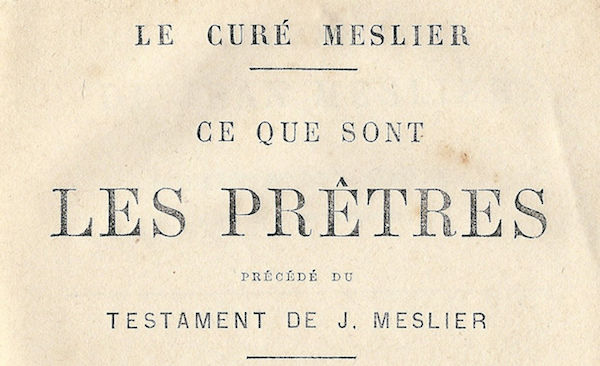
6. The “War Song of an Atheist Priest” (18th c.)
In the last years of the 17th century, as Europe continued its slow recovery from 140 years of religious war, a young man named Jean Meslier became a Catholic priest — even though he didn’t believe in God. He did so because his parents wanted him to, and because he felt he could do more to help people in need from inside the church than outside.
During 40 years as a priest, Meslier’s atheism and his contempt for all religion deepened. He felt that the Catholic Church made people subservient in his parish, that believing and saying things that weren’t true was unworthy, and that more misery and fear flows from religious belief than comfort and inspiration. But he felt trapped in his job, unable to be honest about his views for fear of arrest and execution.
So Meslier did his priestly duties every day — serving the poor and sick, giving homilies, burying the dead, and performing baptisms and funerals. By night he returned to his room and worked on his magnum opus: the first book-length work in Europe written from an explicitly atheist perspective with an author’s name on it. And what a name it was — a priest in the Holy Catholic Church.
He wrote it for his parishioners, then left it for them to find upon his death. Voltaire later called it the “war song of an atheist priest.” It remains one of the most provocative and moving works in the history of atheism.














